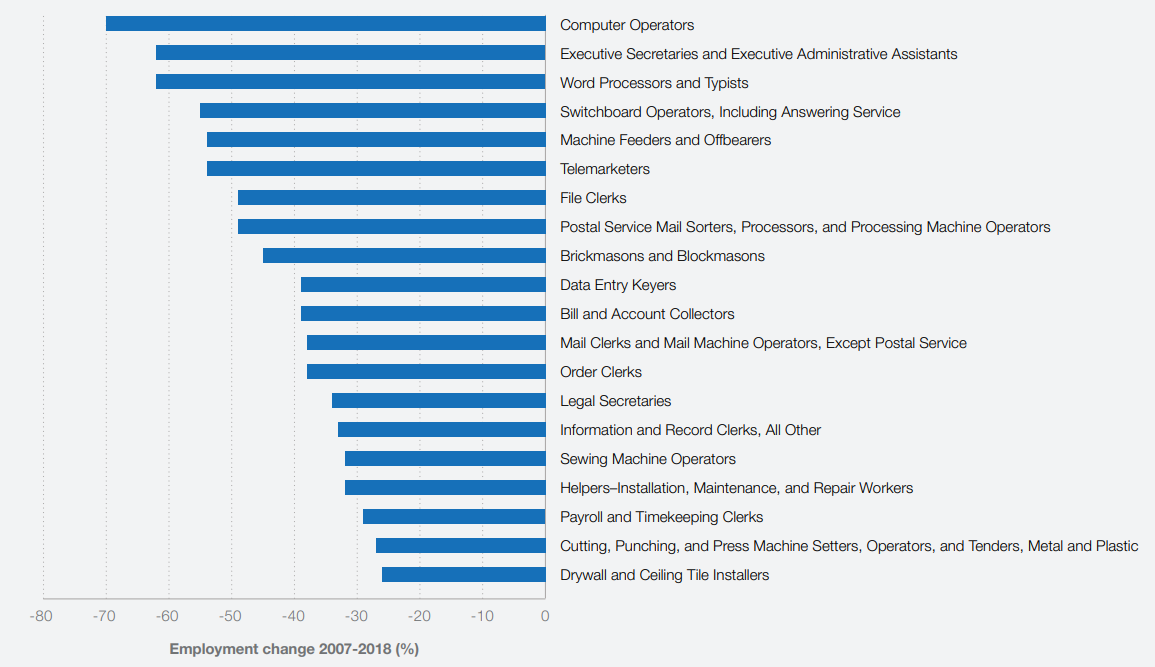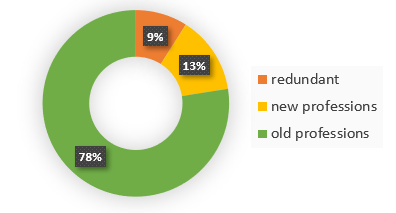7.4 Future of Jobs
backUnderstand /5
7.4.2 Future of Jobs Report
World Economic Forum report 2020
The WEF Report contains predictions for the next five years based on surveys carried out worldwide. This writing is the summary of the report.
Job creation is slowing, while job destruction accelerates
- The pace of technology adoption may accelerate: cloud computing, big data, artificial intelligence and e-commerce. 43% of businesses are set to reduce their workforce due to technology integration. In simple words: they will substitute most of their workers with machines and robots.

The chart shows the jobs which are at high risk due to automation. For example, 70% of computer operators lost their jobs between 2007-2018.
- 41% of businesses plan to outsource at least part of their activities. In simple words: they will terminate many of their workers.
- Inequality is likely to grow; jobs held by lower wage workers, women and younger workers are deeply impacted. In simple words: uneducated workers, fresh graduates and women tend to lose or don't find jobs.
Skill gaps remain high, as demand for skills continues to grow
- 9% of current professions will be redundant, while 13.5% of the jobs will be emerging, new profession, requiring new skills

- The top skills include groups such as critical thinking and analysis as well as problem-solving, and skills in self-management such as active learning, resilience, stress tolerance and flexibility. Around 40% of workers will require reskilling of six months and 94% of businesses expect employees to pick up new skills on the job. Their estimation is that 50% of all employees will need reskilling. In simple words: everyone has to learn new skills in order to keep their jobs.
- Online learning is expanding to close the gap. 88% more people are interested in online courses than in the previous year, especially among unemployed people.
Remote work becomes prevalent
- Eighty-four percent of employers are set to expand of remote work— 44% of their workforce will operate remotely.
The bottomline: there will be less work opportunity, and more reskilling/upskilling. However, highly skilled employees will be respected and pampered.
